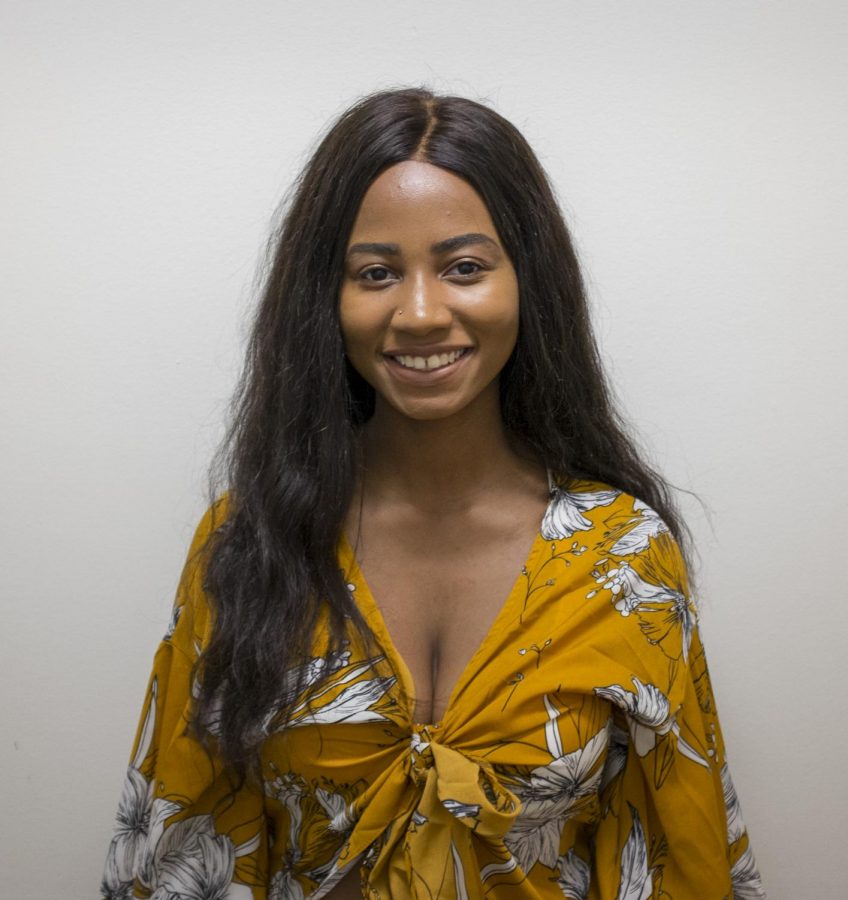Last week I got into an argument with my boyfriend. It wasn’t major — just a back and forth over a miscommunication, but afterwards I was feeling pretty down about it and reached out to my mom for advice. When I told her about my grievance over a comment he had made, she laughed and said, “That’s how guys are. They’re gonna say stupid stuff and you just have to train them.” I was confused by her mindset, and while we talked about it and concluded that we grew up in two different time periods, the statement still bothered me — because I don’t think we actually left it behind decades ago.
The interactions I’ve witnessed between the couples in my family growing up have shaped the way I view relationships and gender dynamics. Combined, my parents have 11 siblings, so needless to say I have a lot of examples. Many of the universal, antiquated ideas regarding cis-hetero relationships are there: the expectation you have to make a plate for your man at family functions; the belief that you need to have the house clean and dinner ready for your man when he gets home from work. And there’s the implied notion that women are demons who fake ailments to get out of their lawful duty: sexually servicing their men. You know, the usual. Each and every one of these expectations is misogynistic and incredibly harmful. However, the idea that a woman must train their romantic partner is one that, as a black woman, has much farther reaching implications than who I am dating.
The issue also grows political in scope. Beyond having to teach their romantic partners how to treat not only them, but people in general, black women have also been tasked with saving our deeply flawed country. This past January, activist Shaun King tweeted about his 2020 presidential election projections. He expressed his desire for Oprah Winfrey to run against Donald Trump, and later added that former first lady Michelle Obama would be another “formidable opponent.” Out of this thread came the Oprah/Michelle 2020 Twitter trend, where users projected their political anxieties onto these two women, neither of whom have expressed interest in office, and definitely not the Executive Office. In fact, Oprah herself has said that she would not run for president, and I think we all know Michelle Obama was over her husband’s job a while ago. Furthermore, given the fact that 94 percent of black women voted against Trump, this really is not a problem that we created.
We saw this same attitude a few months prior, during the Senate special election in Alabama. In Doug Jones’s defeat of the nine-times accused sexual predator Roy Moore, demographic polling showed that the race was close, and that 98 percent of black women backed Jones, leading the charge to elect the first Democrat senator in Alabama in 20 years. The general public responded by thanking black women, even starting the #ThankYouBlackWomen hashtag. But these empty statements aren’t enough. Here we have a group of people who are disproportionately pushed to the margins by those they rally for, in hopes of creating better communities. Furthermore, even when members of the very same group look beyond established power roles and take things into our own hands, we still risk erasure.
Black Lives Matter is a perfect example of black women being pushed out of their own work. The movement, sparked by the acquittal of George Zimmerman in the murder of Trayvon Martin and popularized after the killing of Michael Brown in 2014, was founded by Patrisse Cullors, Alicia Garza and Opal Tometi. Despite its origins, #BlackLivesMatter has largely focused on the deaths of black men which, while of course need to be recognized, are not the only black victims of police brutality. Sandra Bland’s death is pretty much the most well-known example of a woman being the focus, and the basis of the campaign was the fact that black women have not been a priority, thus #SayHerName. This specific movement aims to “[document] stories of Black women who have been killed by police, shining a spotlight on forms of police brutality often experienced disproportionately by women of color.”
The bottom line is: stop expecting black women to carry your burden, and when we choose to, give credit where credit is due. Whether we’re your mother, wife, colleague or idol, we should not be the default fixers, especially when that same courtesy isn’t extended to us.
Identity of Love is a column devoted to exploring the ups and downs of navigating love, sex and relationships for those whose narratives have historically been pushed to the margins. Identity of Love runs alternate Tuesdays.
Cheyenne Porcher is a sophomore in the Gallatin School of Individualized Study. Email Cheyenne at [email protected].
Opinions expressed on the editorial pages are not necessarily those of WSN, and our publication of opinions is not an endorsement of them.























































































































































